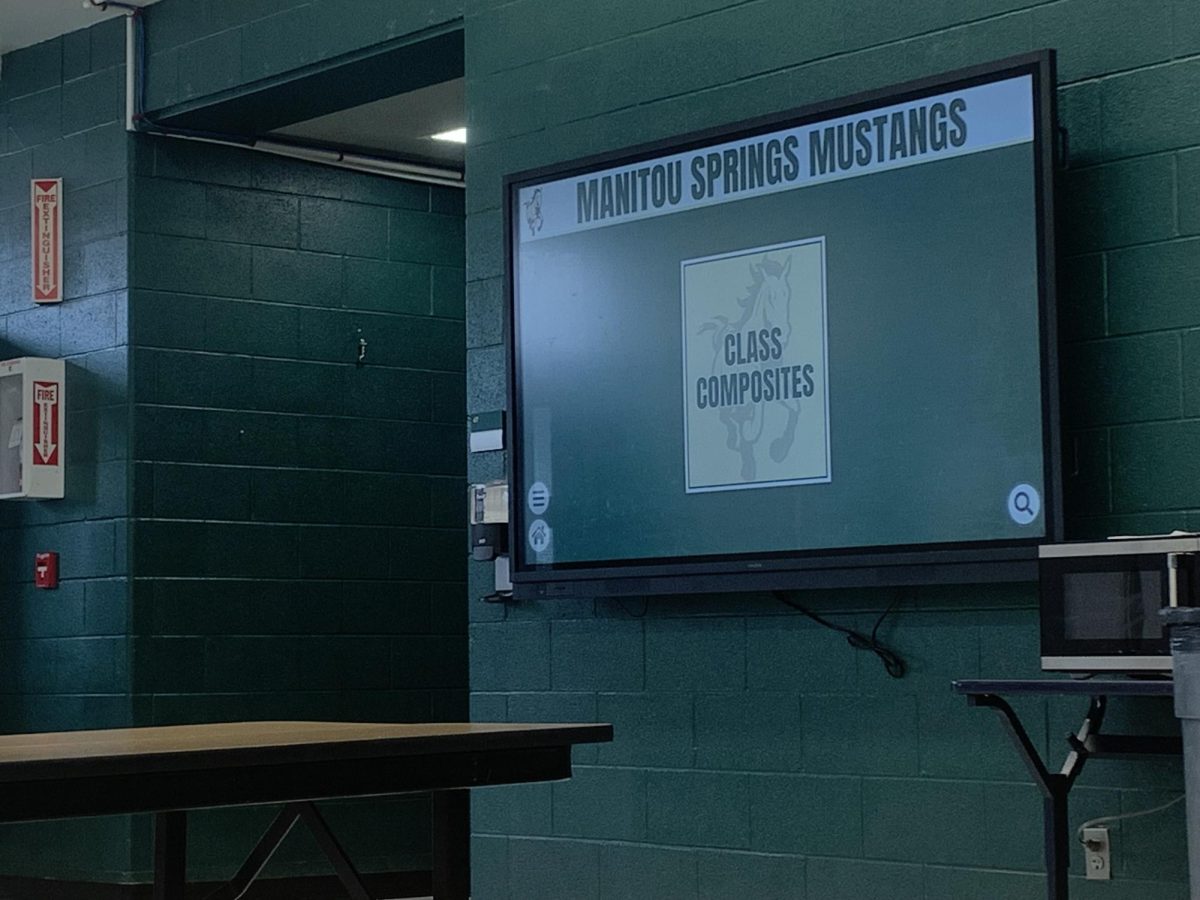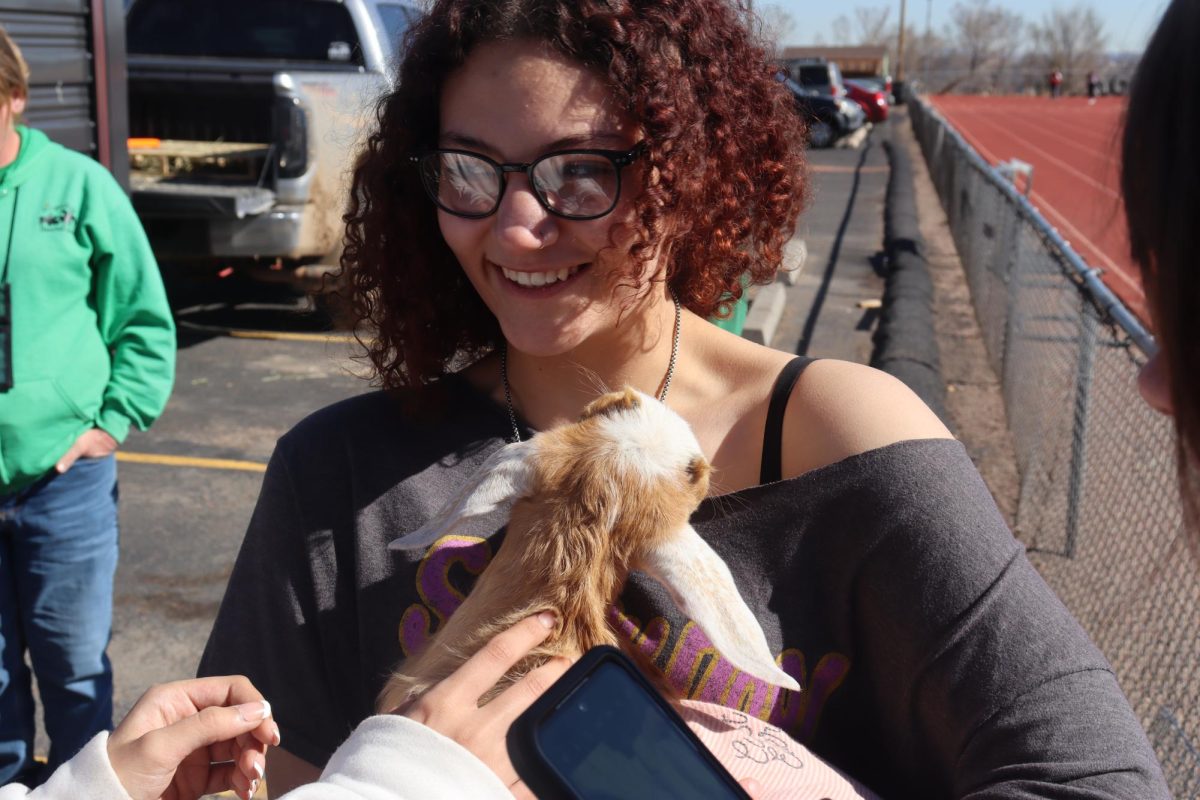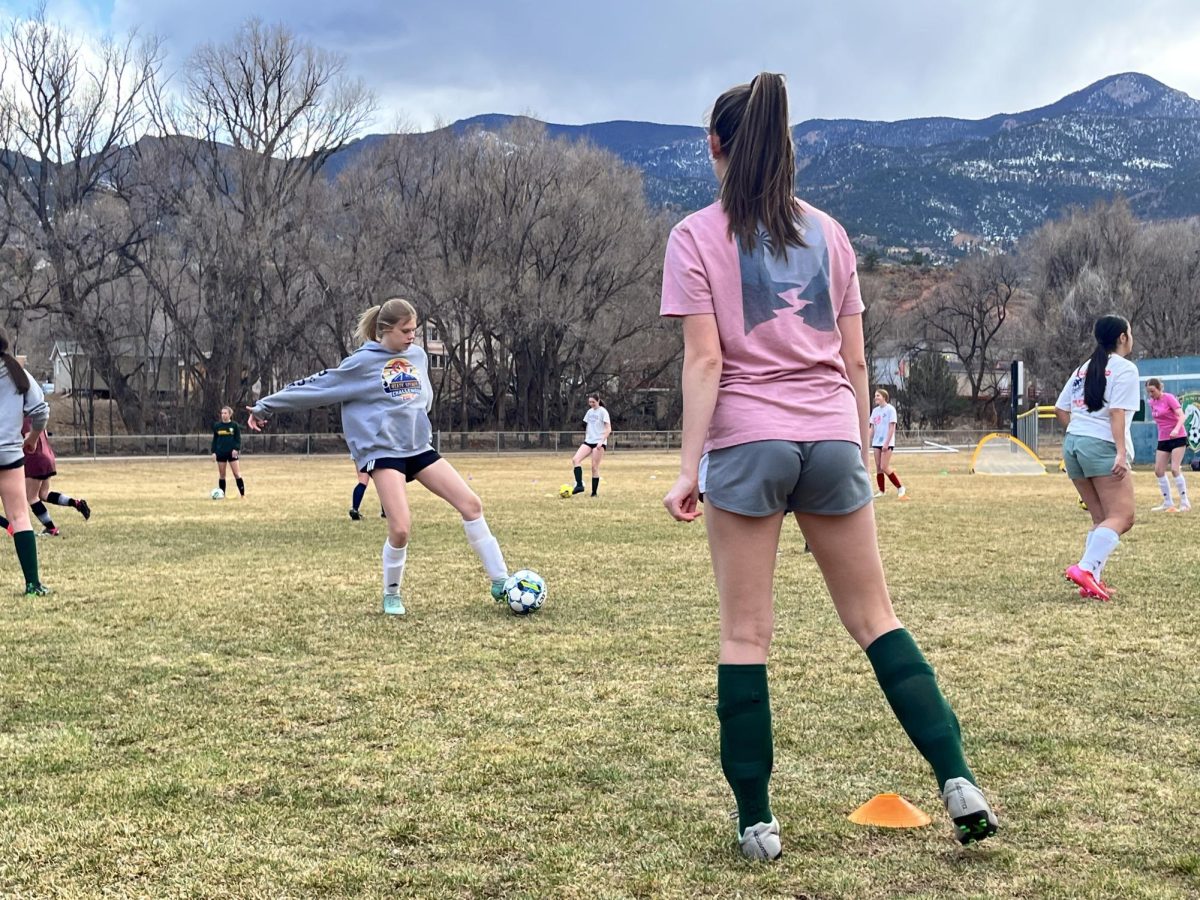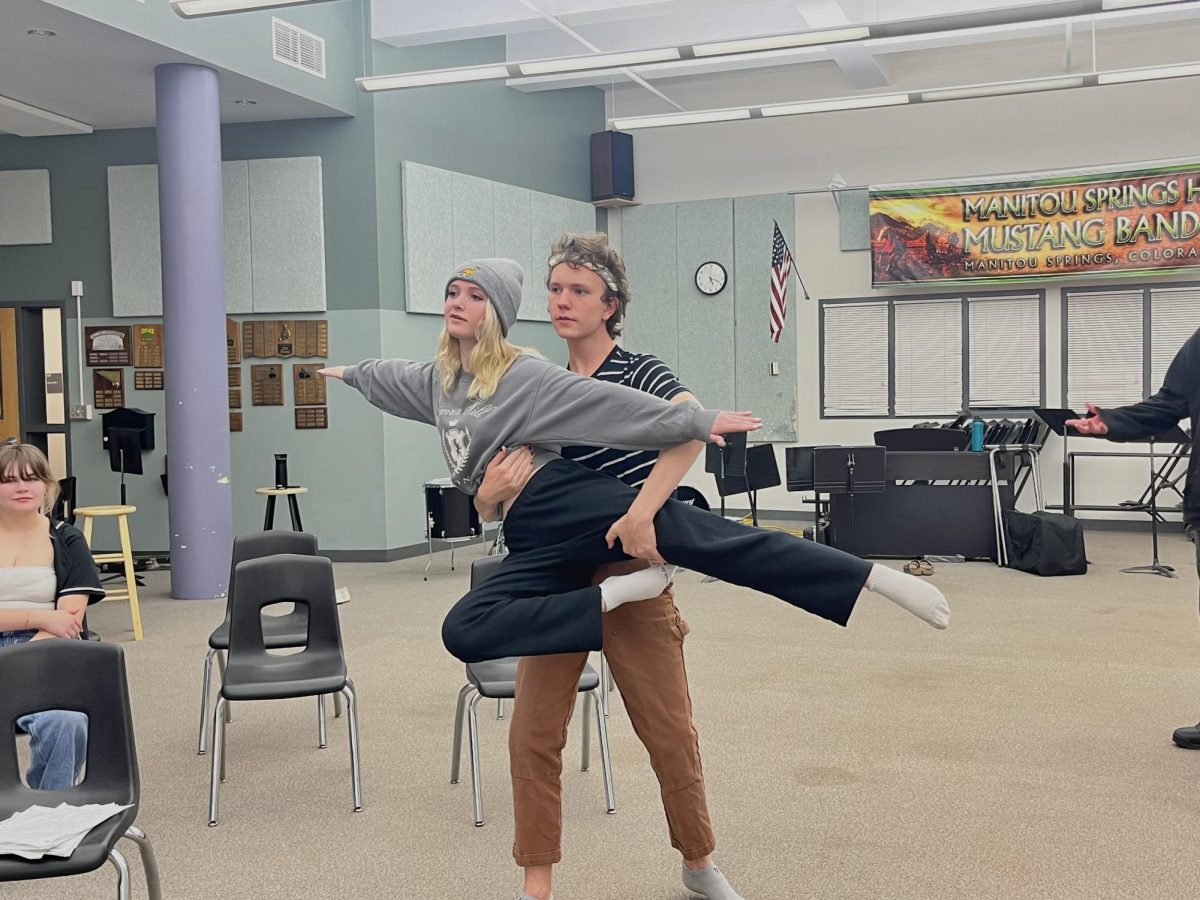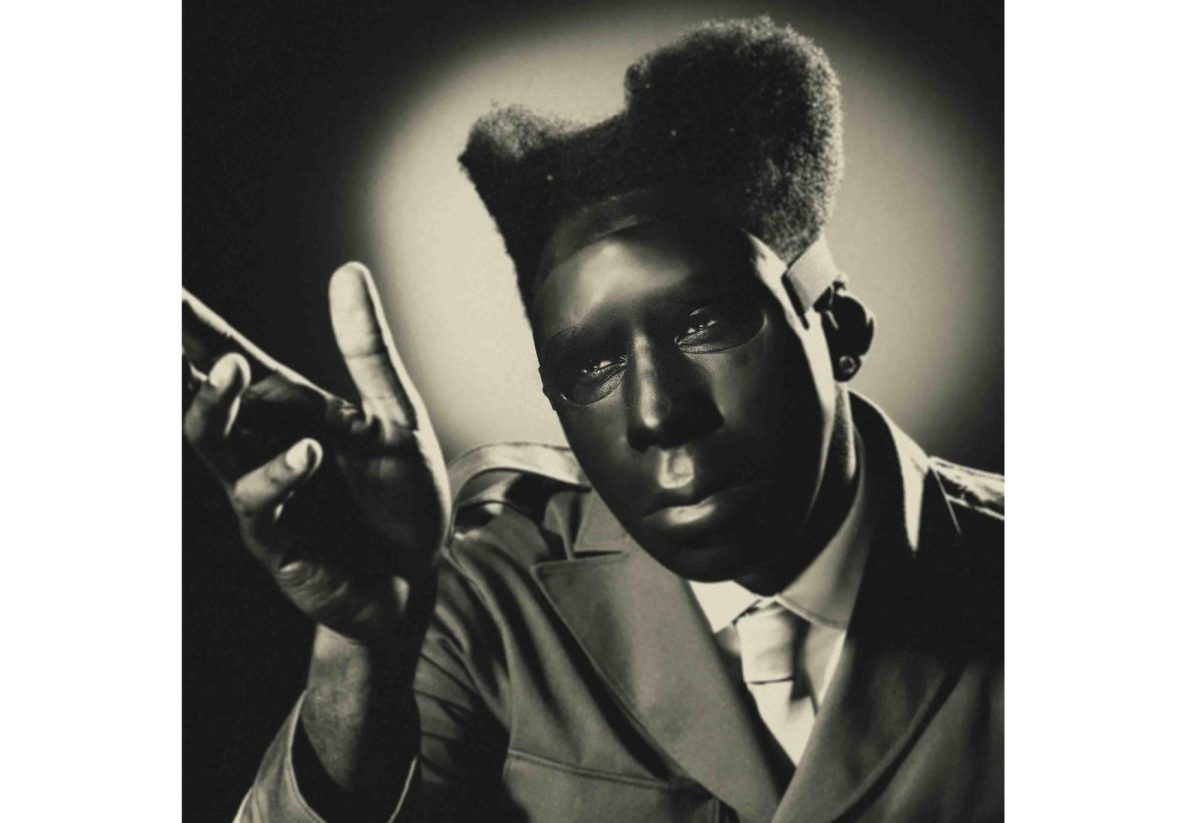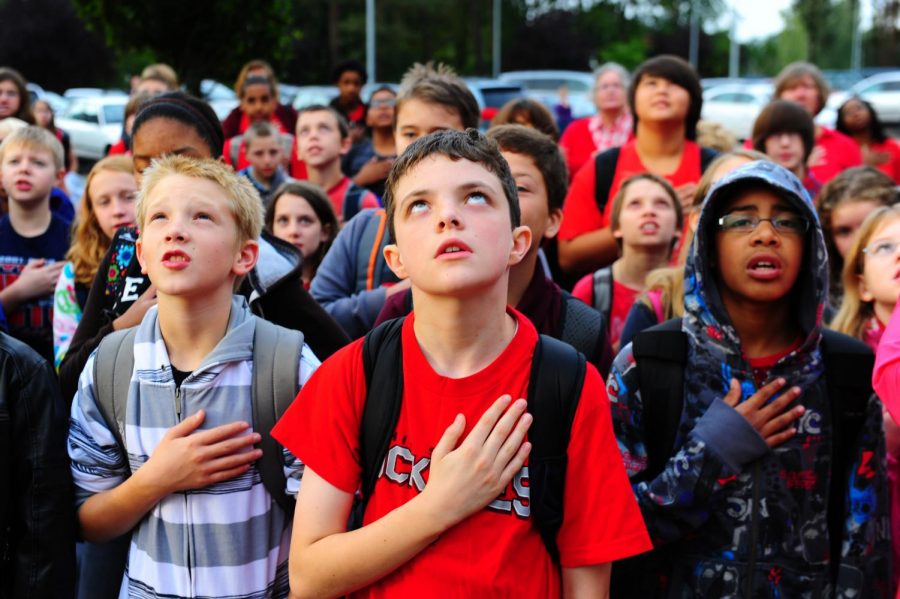The Problem With the Pledge
March 6, 2020
“I pledge allegiance to… to what?” Every morning is usually accompanied by the drone of teens reciting a mantra to a flag at Manitou Springs High School (MSHS). Most schools across the country follow this ritual as well, each hoping to instill a deep sense of patriotism and pride in their students. But what is the real purpose of doing this? It is pointless and excessive to have students say the Pledge of Allegiance, day after day, without understanding why.
Every morning of each day has begun to feel like a great pressure of authoritarianism is looming above us, beckoning us to recite something we don’t really feel. Many students don’t really say the words with feeling or effort, but just mumble out the phrase that’s been ingrained into their heads, trying to get onto class and back into their seats. The constant repetition has basically caused the pledge to lose most meaning for students.
Once a week seems like a sufficient amount to be doing an often mandatory pledge. MSHS is not as strict about students not standing for the pledge as some other schools are, but it is usually not appreciated and highly encouraged that everyone stands at attention. Students might often feel pressure as well to do it because everyone else has risen to their feet. Sitting during the pledge is protected under free speech and the freedom of expression in school. With some distaste of our country’s current climate and direction, students only need one opportunity a week to express their feelings toward the country.
This is also a traditional uniquely American. Very few other countries have their own pledges, let alone recite them every morning. The Philippines and Vietnam both have pledges of Allegiance but they are rarely recited. Foreign exchange students are also required to do the pledge or their program eligibility can be questioned as they have to respect our country’s traditions. That is almost ironic as many American students don’t respect this tradition or even consider it a tradition.
The Pledge of Allegiance also includes the phrase “under God.” Religious expression is meant to be free in this country, and to have to pledge allegiance not only to a country but a god not believed in by every single student is very questionable. “Liberty and justice for all,” is also a very debatable clause, as there has been a lot of civil unrest about the lack of such a thing. With race, gender, and sexual orientation inequalities still plaguing the nation, it contradicts the reliability and meaning of a pledge like this. The pledge also has political origins in nativism and white nationalism, showing an even broader struggle for inequality in this nation.
Students should never be required to stand for the pledge, and the opportunity to do the pledge should only be presented once a week. The history of the pledge should be taught to students, as well as the issues occurring in society and how they can help change them.

